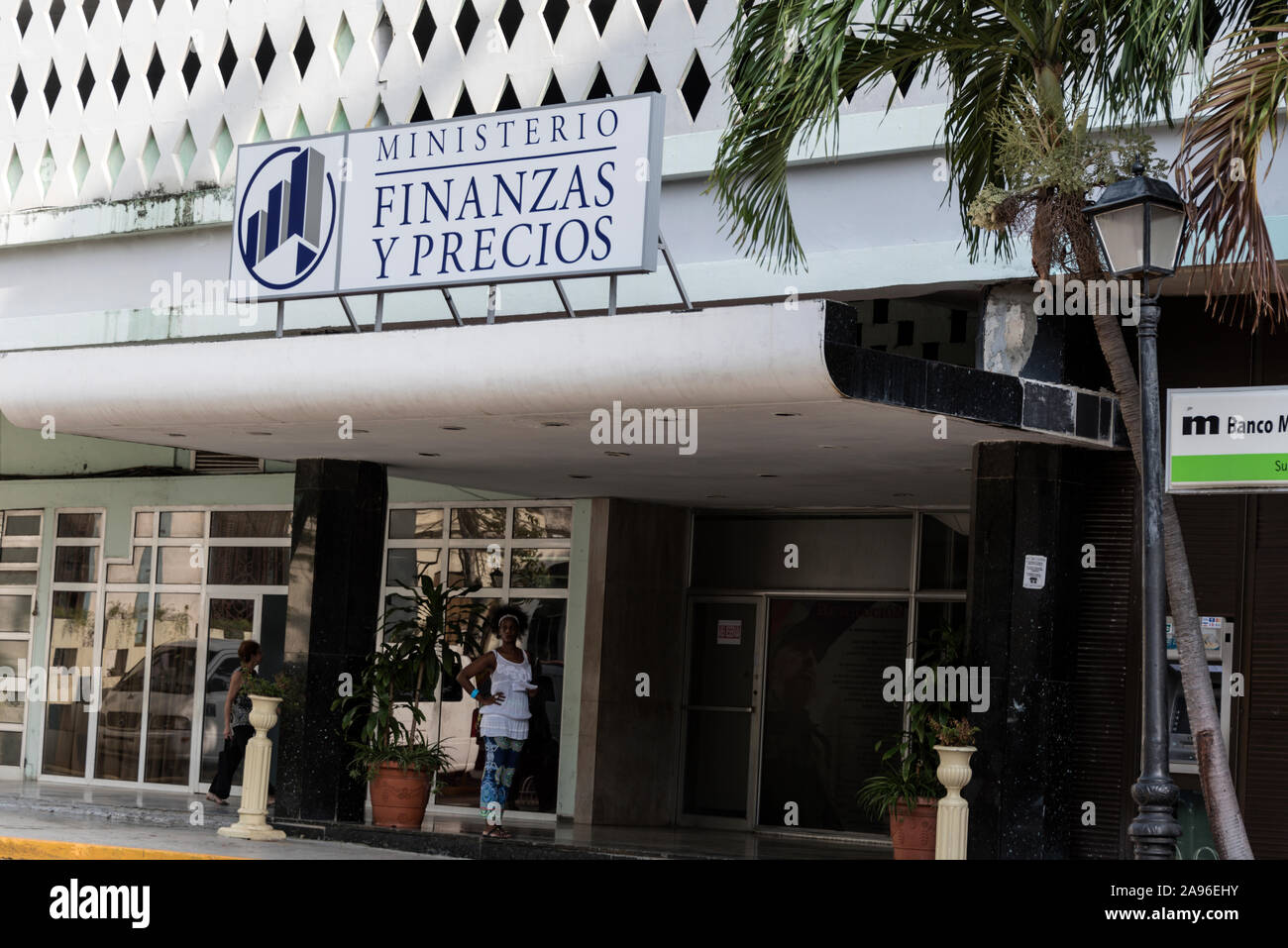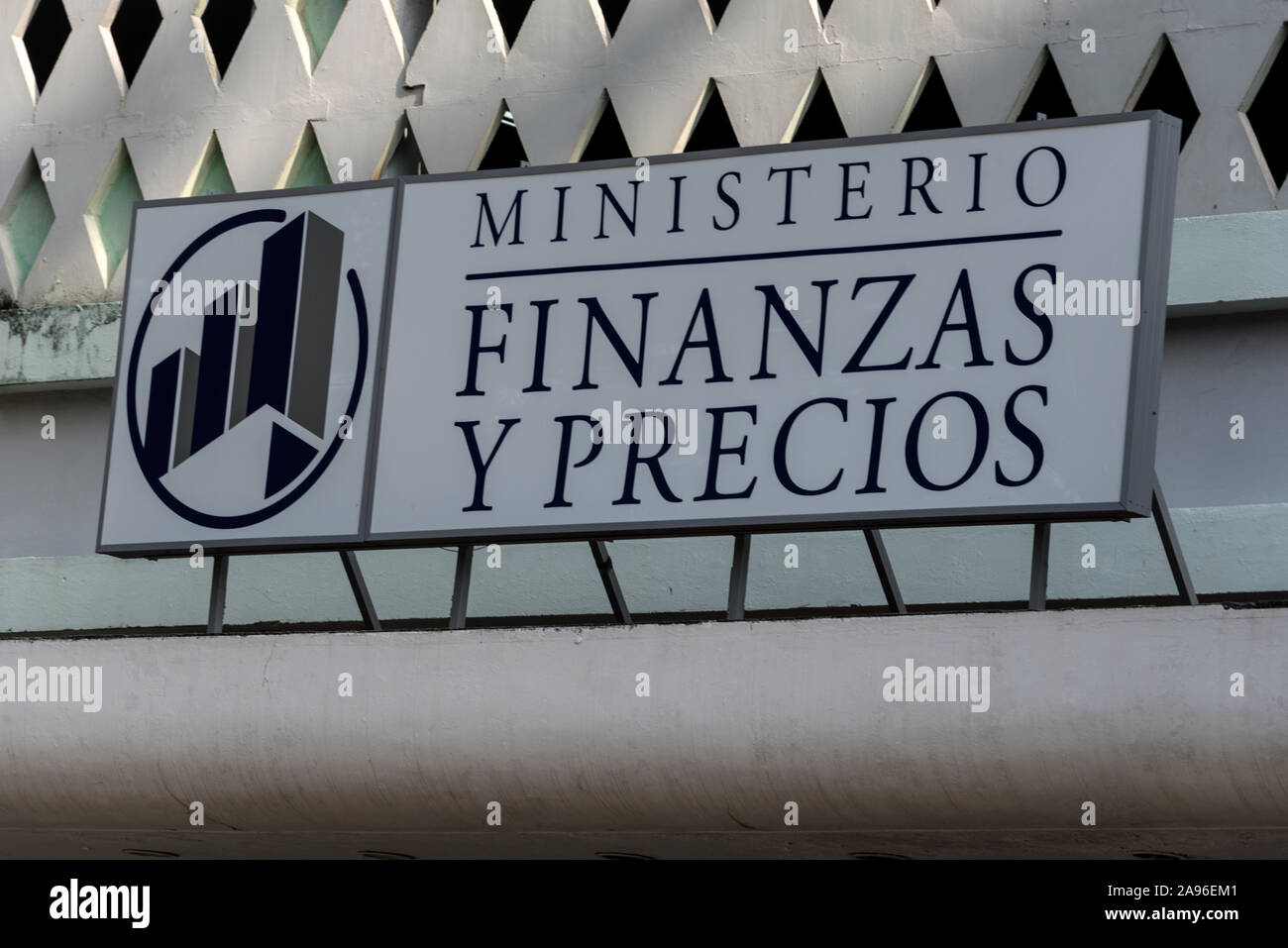The Ministry of Finance and Prices of Cuba plays a crucial role in shaping the nation's economic landscape. As the central authority managing financial policies, taxation, and pricing regulations, this institution is pivotal in ensuring economic stability and growth. Understanding its functions, structure, and impact on Cuban society is essential for anyone interested in the country's economic dynamics.
Cuba's economic system operates under unique conditions, blending socialist principles with market-oriented reforms. The Ministry of Finance and Prices (Ministerio de Finanzas y Precios) is at the forefront of these efforts, implementing policies that balance fiscal responsibility with social welfare objectives. This article delves into the intricacies of this vital institution, providing insights into its operations and significance.
From its role in fiscal policy formulation to its oversight of pricing mechanisms, the Ministry of Finance and Prices has a profound impact on Cuba's economy. By exploring its history, structure, and current initiatives, readers will gain a comprehensive understanding of how this ministry contributes to the nation's economic development. Let's dive into the details and uncover the essential aspects of this influential organization.
Read also:Benjamin Ayres Age Unveiling The Life And Legacy Of A Remarkable Figure
Table of Contents
- Introduction to the Ministry of Finance and Prices
- Historical Background
- Organizational Structure
- Key Functions and Responsibilities
- Impact on the Cuban Economy
- Pricing Regulations and Policies
- Taxation System in Cuba
- Recent Reforms and Initiatives
- Challenges and Opportunities
- Future Outlook
Introduction to the Ministry of Finance and Prices
The Ministry of Finance and Prices of Cuba is the primary government body responsible for managing the nation's financial resources and regulating prices. Established to oversee fiscal policies, taxation, and economic planning, this ministry plays a central role in maintaining economic stability and promoting growth. Its mandate includes ensuring efficient resource allocation, controlling inflation, and safeguarding the interests of Cuban citizens.
In recent years, the ministry has been instrumental in implementing reforms aimed at modernizing the Cuban economy. By aligning policies with international standards and addressing local challenges, it continues to evolve and adapt to changing economic conditions. This section provides an overview of the ministry's foundational principles and strategic objectives.
Historical Background
Origins and Evolution
The origins of the Ministry of Finance and Prices can be traced back to the early years of the Cuban Revolution. Initially established as part of a broader effort to centralize economic planning, the ministry has undergone several transformations over the decades. These changes reflect the evolving needs of the Cuban economy and the shifting priorities of the government.
Key milestones in the ministry's history include the introduction of the dual currency system in the 1990s and subsequent reforms aimed at unifying the currency. These measures were designed to address economic imbalances and improve efficiency in resource allocation. By examining this historical context, we can better understand the challenges and achievements of the ministry.
Organizational Structure
The Ministry of Finance and Prices operates through a well-defined organizational structure, comprising various departments and divisions. Each unit has specific responsibilities, contributing to the overall effectiveness of the ministry's operations. The structure is designed to ensure coordination and collaboration across different functions, fostering a cohesive approach to economic management.
Departments and Divisions
- Department of Fiscal Policy
- Department of Taxation
- Department of Pricing and Regulation
- Department of International Relations
These departments work in tandem to implement policies and address emerging issues. By leveraging their expertise and resources, they contribute to the ministry's ability to respond to both domestic and international challenges.
Read also:Andrea Russett And Zane Hijazi A Journey Of Passion Business And Philanthropy
Key Functions and Responsibilities
The Ministry of Finance and Prices has a wide range of responsibilities, encompassing fiscal policy formulation, taxation, and price regulation. These functions are critical to maintaining economic stability and promoting sustainable development in Cuba. Below are some of the key areas of focus:
Fiscal Policy
Developing and implementing fiscal policies is one of the ministry's primary functions. This involves budgetary planning, expenditure management, and revenue generation. By ensuring prudent fiscal management, the ministry aims to achieve long-term economic stability and growth.
Taxation
The taxation system in Cuba is overseen by the Ministry of Finance and Prices, which is responsible for designing and enforcing tax laws. This includes personal income tax, corporate tax, and other levies aimed at generating revenue for public services and infrastructure development.
Impact on the Cuban Economy
The policies and initiatives of the Ministry of Finance and Prices have a significant impact on the Cuban economy. By regulating prices, managing fiscal resources, and implementing taxation policies, the ministry influences various sectors, including agriculture, industry, and services. This section explores the broader implications of its actions on the national economy.
Sectoral Analysis
- Agriculture: Support for farmers through subsidies and pricing mechanisms
- Industry: Investment in infrastructure and manufacturing
- Services: Development of tourism and other service industries
Through targeted interventions, the ministry aims to stimulate growth and improve living standards across all sectors of the economy.
Pricing Regulations and Policies
One of the critical responsibilities of the Ministry of Finance and Prices is the regulation of prices. This involves setting guidelines for essential goods and services, ensuring affordability and accessibility for all citizens. By implementing transparent pricing policies, the ministry seeks to prevent inflation and maintain economic stability.
Key Pricing Policies
- Subsidized prices for basic necessities
- Market-driven pricing for non-essential goods
- Regulated pricing for public services
These policies are designed to balance economic efficiency with social equity, addressing the needs of both consumers and producers.
Taxation System in Cuba
The taxation system in Cuba is an integral part of the Ministry of Finance and Prices' operations. It serves as a primary source of revenue for the government, funding public services and infrastructure development. The system is structured to ensure fairness and transparency, with taxes levied on individuals, businesses, and imports.
Types of Taxes
- Personal Income Tax
- Corporate Tax
- Value-Added Tax (VAT)
- Customs Duties
By implementing a comprehensive taxation framework, the ministry ensures that resources are allocated efficiently and equitably, supporting the nation's development goals.
Recent Reforms and Initiatives
In recent years, the Ministry of Finance and Prices has undertaken several reforms aimed at modernizing the Cuban economy. These initiatives include the unification of the dual currency system, streamlining taxation procedures, and enhancing price regulation mechanisms. By aligning policies with international standards, the ministry seeks to improve economic efficiency and competitiveness.
Key Reforms
- Currency Unification: Eliminating the dual currency system
- Tax Simplification: Reducing complexity in tax collection
- Digital Transformation: Implementing technology-driven solutions
These reforms reflect the ministry's commitment to addressing long-standing challenges and embracing new opportunities for growth and development.
Challenges and Opportunities
Despite its achievements, the Ministry of Finance and Prices faces several challenges in its mission to promote economic stability and growth. These challenges include addressing inflation, improving fiscal efficiency, and adapting to global economic trends. However, these challenges also present opportunities for innovation and reform.
Addressing Challenges
- Inflation Control: Implementing measures to stabilize prices
- Fiscal Efficiency: Enhancing revenue collection and expenditure management
- Global Integration: Aligning policies with international standards
By tackling these challenges head-on, the ministry can position Cuba as a leader in economic innovation and development.
Future Outlook
Looking ahead, the Ministry of Finance and Prices is poised to play an even more critical role in shaping Cuba's economic future. With ongoing reforms and strategic initiatives, the ministry is well-positioned to address emerging challenges and capitalize on new opportunities. This section outlines the potential directions for the ministry's future activities and their implications for the Cuban economy.
As the global economic landscape continues to evolve, the ministry will need to remain agile and adaptive, ensuring that its policies and initiatives align with both local needs and international trends. By fostering collaboration and innovation, it can drive sustainable growth and development in Cuba.
Conclusion
The Ministry of Finance and Prices of Cuba is a vital institution responsible for managing the nation's financial resources and regulating prices. Through its diverse functions and strategic initiatives, it plays a crucial role in promoting economic stability and growth. By examining its history, structure, and impact, we gain a deeper understanding of its significance in shaping Cuba's economic future.
We invite readers to engage with this content by leaving comments, sharing insights, and exploring related articles on our website. Together, we can foster a greater appreciation for the complex dynamics of Cuba's economy and the pivotal role of the Ministry of Finance and Prices in driving its development.
For further reading, consider exploring additional resources on Cuban economics and policy-making. Stay informed and stay engaged with the latest developments in this dynamic field.


